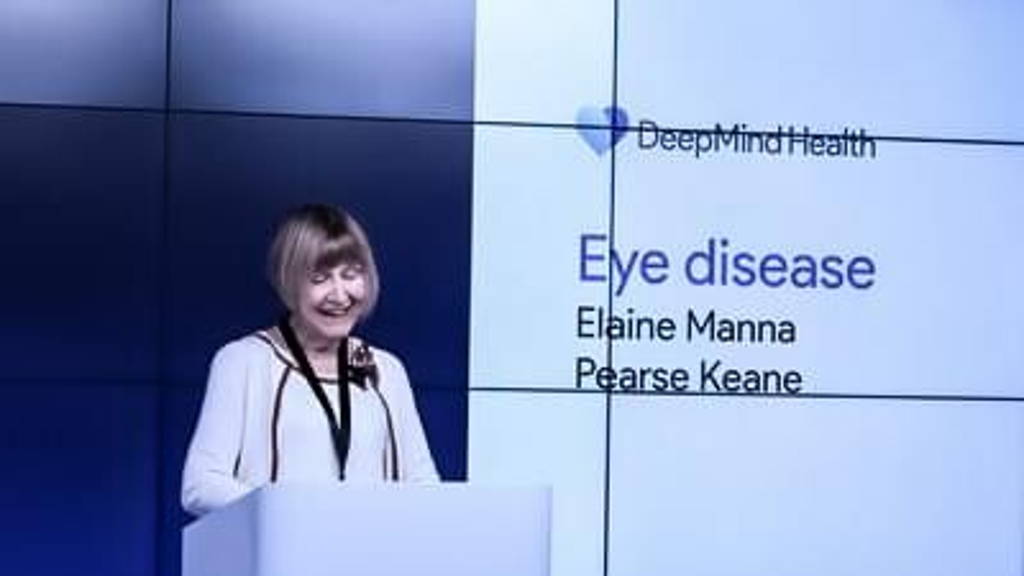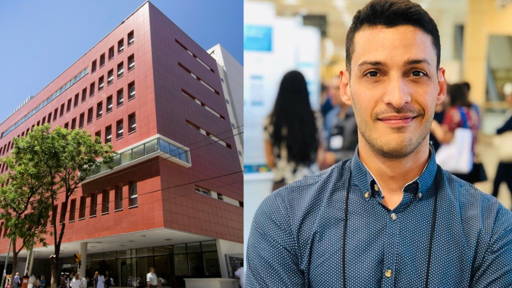The group of more than 130 patients, carers and members of the public initially reacted well as the company put forward its case for working with the NHS, according to the BBC. However, as the forum progressed, the extent of the organisation's plans for accessing patient data became clearer and some members of the audience expressed concerns.
DeepMind was founded in 2011. Google bought the startup in 2014 for 500 million dollars. In February 2016 DeepMind launched a health initiative to reduce the number of patients receiving the wrong care or wrong medication because of lack of (shared) information. A pilot was started with the NHS in February.
In July DeepMind expanded its collaboration with the NHS, announcing a research partnership today with Moorfields Eye Hospital NHS Foundation Trust in London. The Moorfields partnership is focused on two specific sight-loss causing conditions: diabetic retinopathy and age-related macular degeneration (AMD), which DeepMind notes collectively affect more than 625,000 people in the UK and more than 100 million people worldwide.
Patients don't have to share their medical records with DeepMind if they don't want to. But in order to opt out they must email their NHS Trust's data protection officer. Some 148 patients wrote to NHS Royal Free to opt out. Other companies also have access to patient medical records. The exact number of data sharing agreement's across the NHS isn't clear as they're centrally stored and each trust makes its own agreements.
DeepMind sketched how it wants to build a patient portal that would allow patients and doctors to track a patient's full medical history in chronological order via an app on their smartphone. The app would allow patients to insert their own data on their condition and document any problems they experienced following an operation, according to the BBC.
This patient portal plan seemed to shock some members of the audience, with attendees questioning how safe medical data would be. Jen Persson, a co-ordinator from campaign group Defenddigitalme, told the BBC, was astounded how a commercial company clearly feels entitled to access NHS patient medical records without consent and that many in the room seemed to have accepted that unquestioningly.
Patients have been left out so far of what DeepMind has done, says Persson. “The firm is not at the start of 'patient and public engagement' as it put it, but playing catch-up after getting caught getting it wrong.” Suleyman stresses the patient portal is just an idea at this stage, adding that DeepMind Health is probably "years away from building it."
So far DeepMind announced three initiatives with the NHS
DeepMind was founded in 2011. Google bought the startup in 2014 for 500 million dollars. In February 2016 DeepMind launched a health initiative to reduce the number of patients receiving the wrong care or wrong medication because of lack of (shared) information. A pilot was started with the NHS in February.
In July DeepMind expanded its collaboration with the NHS, announcing a research partnership today with Moorfields Eye Hospital NHS Foundation Trust in London. The Moorfields partnership is focused on two specific sight-loss causing conditions: diabetic retinopathy and age-related macular degeneration (AMD), which DeepMind notes collectively affect more than 625,000 people in the UK and more than 100 million people worldwide.
Anonymised data
Using anonymized patient data and steering away from any direct patient care application reduces the information governance/ethical approvals DeepMind and partner NHS Trust need to obtain in order to work with public healthcare data in this instance. This was a stark contrast to the first initiative with the Royal Free NHS Trust in London, which initially focused on an app for improving the early detection of Acute Kidney Injury (AKI). The project attracted controversy and criticism after the full scope of the data-sharing agreement was revealed.Patients don't have to share their medical records with DeepMind if they don't want to. But in order to opt out they must email their NHS Trust's data protection officer. Some 148 patients wrote to NHS Royal Free to opt out. Other companies also have access to patient medical records. The exact number of data sharing agreement's across the NHS isn't clear as they're centrally stored and each trust makes its own agreements.
Patients at the heart of plans
"Patients are at the heart of what we do and as we embark on this decade-long opportunity, we really need a diverse group of people to help us design the products," said Mustafa Suleyman, cofounder of DeepMind and head of DeepMind Health, during the meeting. He also wrote about it in a blog.DeepMind sketched how it wants to build a patient portal that would allow patients and doctors to track a patient's full medical history in chronological order via an app on their smartphone. The app would allow patients to insert their own data on their condition and document any problems they experienced following an operation, according to the BBC.
This patient portal plan seemed to shock some members of the audience, with attendees questioning how safe medical data would be. Jen Persson, a co-ordinator from campaign group Defenddigitalme, told the BBC, was astounded how a commercial company clearly feels entitled to access NHS patient medical records without consent and that many in the room seemed to have accepted that unquestioningly.
Patients have been left out so far of what DeepMind has done, says Persson. “The firm is not at the start of 'patient and public engagement' as it put it, but playing catch-up after getting caught getting it wrong.” Suleyman stresses the patient portal is just an idea at this stage, adding that DeepMind Health is probably "years away from building it."
So far DeepMind announced three initiatives with the NHS
- a kidney monitoring app called Streams that is being developed with the NHS Royal Free Trust.
- a research project with Moorfields Eye Hospital to determine whether machine learning can be used to improve the detection of age-related macular degeneration.
- a partnership with University College Hospital to see if machine learning can be used to help clinicians plan radiotherapy for head and neck cancers more quickly








